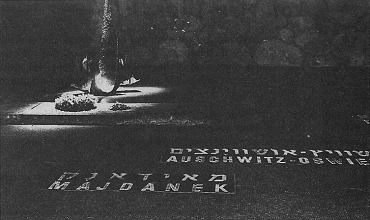|

|
In Our Ancestor's Footsteps
|
|

|
The
Righteous of the Nations
In Israel and the Jewish world, Oskar Schindler is known
as one of the "righteous of the nations " (in
Hebrew, hasidei ummot ha-olam). It is a term
applied to those non-Jews who risked their lives to save
Jews from the Nazis during the Holocaust. For Jews, part
of the mitzvah of Zikaron is preserving the memory of
these heroic people.
|
In what ways can the Jews be described as a people
that never forgets?
|

|
In 1953, the Israeli Knesset officially passed
legislation creating Yad Vashem, Israel's Holocaust
Remembrance Center. One of its charges is to
perpetuate the names of "the high-minded
righteous who risked their lives to save Jews."
A commission was appointed to check every instance of
a Holocaust rescuer whose name was submitted for
official recognition. A special walkway at Yad Vashem
was created, called the Avenue of the Righteous, and
there a tree is planted in memory of the rescuer.
Those qualifying for the highest honor also receive a
medal and certificate.
Hundreds of trees have been planted along the Avenue
of the Righteous at Yad Vashem on Har HaZikaron (the
Hill of Remembrance). There are trees honoring
individuals, like Oskar Schindler, and Raoul
Wallenberg, a Swedish diplomat who is credited with
saving many thousands of Jews. There are also trees
honoring whole groups of people, like the Danish
underground. During World War 11 almost all of
Denmark's Jews were safely evacuated because of the
bravery of the Danish people. Altogether, over 8,000
men and women have been identified by Yad Vashem as
righteous of the nations, and their rescue efforts
verified. Discovering and honoring the righteous of
the nations is a process that continues even today.

Yad
Vashem, established in Jerusalem in 1953, stands as a
memorial museum and library for the 6 million Jews lost
in the Holocaust.
|
|
|